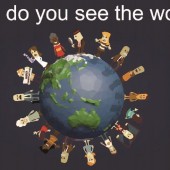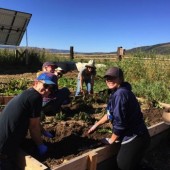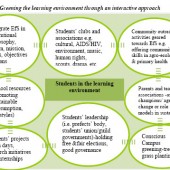
Abstract: A United Nations international collaboration between the Education for Sustainable Development (ESD) and the Principles for Responsible Management Education (PRME) resulted in the creation of Sulitest® (aka Sustainability Literacy Test) an open, online training and assessment tool freely available to higher education institutions globally. This study analyzes the effectiveness of the newly developed Sulitest® to not only measure sustainability literacy of higher education student populations, but also act as a catalyst for boosting affective learning outcomes by: (a) generating interest in sustainability-related issues, (b) improving sustainability-related understandings, and (c) enhancing students’ interests in the subject matter. In order to do so we present a two-phase, exploratory mixed-method pilot study. Preliminary results from this pilot study reveal Sulitest is a useful tool for not only assessing sustainability literacy but also spurring student interests and motivations in sustainability-related subject matters. Findings, discussion and limitations are provided.
Continue Reading
Abstract: Latest results in Education for Sustainable Development (ESD) research and practice show a tendency towards more holistic approaches aiming at deep transformation of the self and the meanings of human existence. Aligned with this, we present the Transdisciplinary Framework of Worldviews and Behaviours (TFWB) to describe the possible formation and expression of a worldview, a complex constellation of meaning and identity from which all human conduct emerges. Four key principles arising from the TFWB are: 1) The whole embodied nervous system is greater than the sum of its separated parts, especially when it comes to intelligence (information processing) and learning (meaning making); 2) The mind is a highly emotion-dependent and mostly unconscious entity; 3) A worldview is a unique arrangement of meaning each person builds, and lives through; and 4) Increasing self-awareness about how a personal worldview is formed and expressed generates increasing opportunities for that individual to explore and build a different meaning for their experience, or to explore and choose different forms to express it (behave). The TFWB informs a new perspective on learning that could be useful for the achievement of ESD’s transformative goals, guiding the innovative design of educational initiatives encouraging new conceptualizations about the meanings of being human; thus, facilitating potential behavioural transformations toward a more sustainable existence.
Continue ReadingAbstract
The study assesses the extent to which curriculum of secondary schools in Tanzania addresses sustainable education through integration of environmental education. Specifically, it evaluates the subjects used to deliver environmental education in secondary school. Also the study found out perceptions, challenges, and recommendations for implementing environmental education. This research adopted a case study, qualitative approach to study the subject matter in its natural settings while making sense of the contents of the subjects and perceptions of stakeholders. Cross sectional, stratified sampling involved both students from all classes, experienced teachers in geography and biology and a head teacher as well. It was found that most environmental education competencies are delivered mainly through the geography subject, and some in biology using an integrated teaching approach. Students and teachers were fairly knowledgeable and had understanding of basic environmental issues. Main challenges facing implementation of environmental education included an integrated learning approach, inadequate knowledge on environmental education, lack of support from each other and from school administration, and cultural myths and beliefs.

Abstract: Offers a brief introduction to the Journal of Sustainability Education issue focused on hope and agency, highlighting hope and agency as essential aspects of sustainability education in the Anthropocene.
Continue Reading
Embedding education for sustainability, in Faith Based Organisations’ (FBOs) school curricula in Uganda, puzzles. Any progressive education system should be dynamic-always calling for timely transformations in content, instructional methodologies, imparted values,
skills and attitudes, to remain holistic. Once these are adequately embraced, the system tends to remain vibrant and relevant to the institutions, the learner and the community. However, in Uganda especially in education institutions of FBOs, Education for
Sustainability (EfS) – a universally conceived aspect of holistic learning seems not to be whole-heartedly attended to either by omission or unawareness. Problems centre mainly on ideological and operational premises. These include lack of awareness, lack of goodwill of
key stakeholders to plan for and manage EfS and lack of competent teachers in EfS aspects. Answers to these problems in essence center on the theoretical underpinning of this report-curricular transformation. Secondly, proper capacity building, integrative planning,
financing and management to enable sustainable programme growth and development should also be enhanced.
This paper describes the perceived condition of access to high-speed Internet for many rural Kentuckians, and reflects on the experience of attempting to bring broadband Internet accessibility to a rural area in Kentucky. This experience is not unlike rural areas in other states however, as numerous stories were discovered over an 8-year period. The general […]
Continue Reading